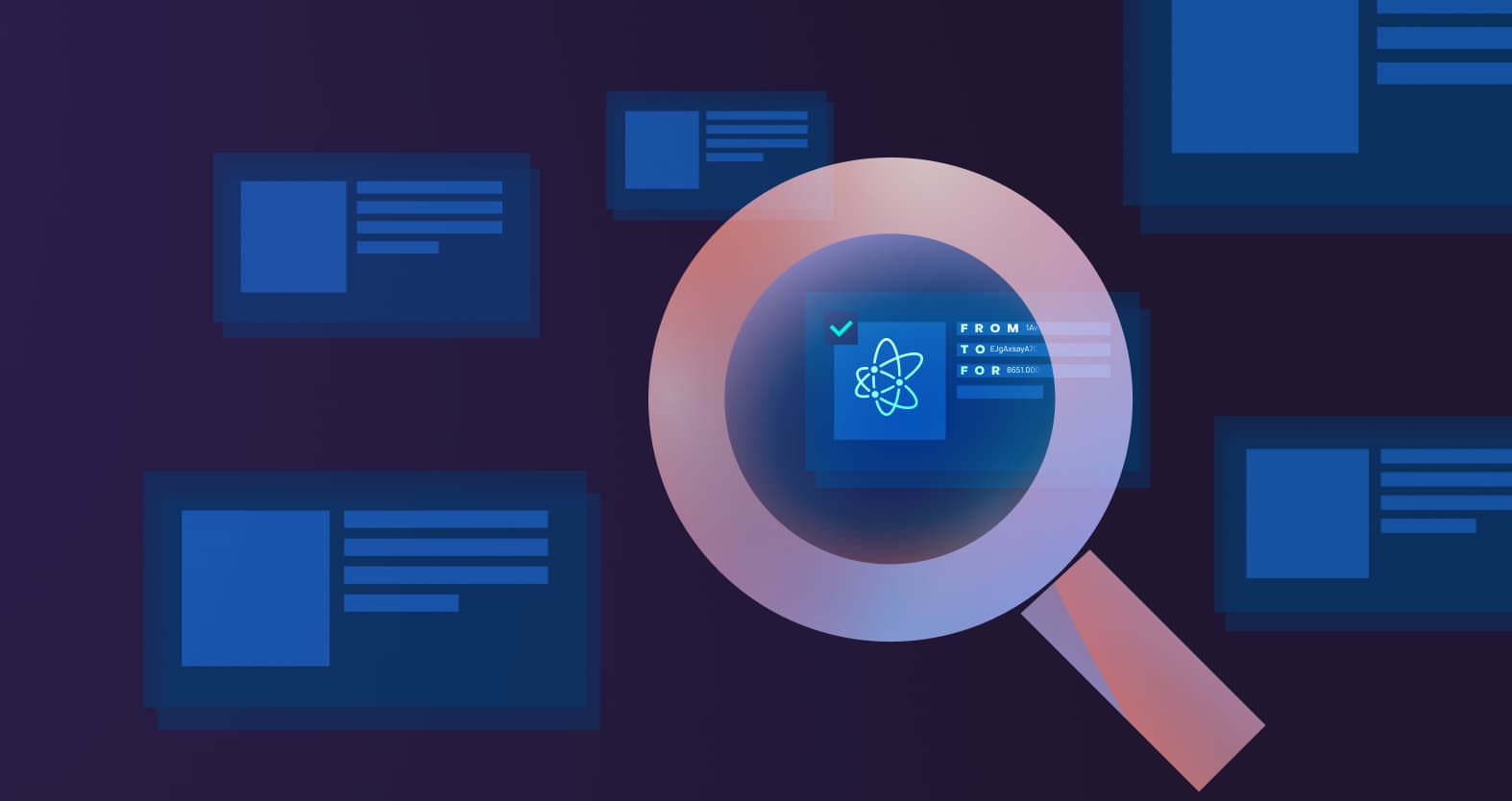
Table of contents
- What Is a Smart Contract?
- Types of Smart Contracts
- Application Logic Contracts (ALC)
- Decentralized Autonomous Organizations (DAO)
- Decentralized Applications (dApps)
- What Is a Smart Contract Audit?
- Steps Involved in Smart Contract Audits
- Importance of Smart Contract Audits
- Who Needs Smart Contract Audits
- Common Security Vulnerabilities Found During Smart Contract Audits
- Smart Contract Security Audit Services Firms
Table of contents
- What Is a Smart Contract?
- Types of Smart Contracts
- Application Logic Contracts (ALC)
- Decentralized Autonomous Organizations (DAO)
- Decentralized Applications (dApps)
- What Is a Smart Contract Audit?
- Steps Involved in Smart Contract Audits
- Importance of Smart Contract Audits
- Who Needs Smart Contract Audits
- Common Security Vulnerabilities Found During Smart Contract Audits
- Smart Contract Security Audit Services Firms
Smart contract audits help improve the security of crypto transactions that interact with blockchain-based applications.
As effective and reliable as these smart contracts are, they sometimes have profound security vulnerabilities if not properly scrutinized. Therefore, understanding smart contracts and their possible flaws or loopholes is essential to ensuring adequate security.
What Is a Smart Contract?
A smart contract is a self-executing digital agreement that enables two or more parties to transparently exchange assets without any conflict or third-party input. They are digital transaction protocols tailored to execute specific terms, address certain issues, and reduce the chance of possible exploitations. Common use cases include decentralized applications, supply chain management, Initial DEX Offerings, and voting.
Like other software applications, smart contracts require specialized audits to tackle security vulnerabilities. These audits are necessary to perform periodic security assessments, avoid costly errors, and ensure that the contracts perform optimally.
Types of Smart Contracts
There are 4 different types of smart contracts, each serving a different purpose. They include:
Application Logic Contracts (ALC)
ALCs are smart contracts built on a decentralized network that combines a smart contract with a front-end interface program. This type of contract facilitates communication between devices and also validates their interactions. ALCs are used for financial services, including investing, trading, lending, and borrowing.
Decentralized Autonomous Organizations (DAO)
In a decentralized autonomous organization (DAO), contracts are between groups of people who agree and establish specific guidelines for a protocol. Developers use smart contracts to create these rules and write them into the DAO’s code using smart contract algorithms.
Decentralized Applications (dApps)
A decentralized application is an autonomous application that records information between two parties and shares these details across multiple nodes on a network. Decentralized applications are known for their security and accessibility because there is no single point of failure since no node can individually crash the network. In addition, anyone can utilize decentralized applications with no signup or other processes required.
What Is a Smart Contract Audit?
A smart contract audit is a thorough line-by-line inspection of a contract’s underlying code. The audit aims to detect and eliminate all possible vulnerabilities and confirm reliable interactions within the contract.
Since blockchain transactions are irreversible, ensuring the security of a project’s code is essential. Deploying smart contracts without proper audits could result in a significant loss of user assets, which we have seen happen many times before due to exploitations.
Steps Involved in Smart Contract Audits
Typically, smart contract audits happen in the following phases:
- Agreement on Specification: The smart contract auditors and the development team agree on the audit’s specifications (purpose, architecture, design, etc.) and scope.
- Testing Process: The auditors perform functional tests for parts of the smart contract code.
- Automated Analysis: Auditors check code for contract vulnerabilities using analysis and automated bug detection tools.
- Manual Analysis: Manual code examination to determine the developer’s intentions and interpret findings.
- Audit Report: Auditors create a detailed audit report after completing tests and analysis.
Importance of Smart Contract Audits
All blockchain-based applications and services require smart contract audits for the following reasons:
- Avoid Costly Errors: Auditing smart contract codes early in development helps avoid potentially costly flaws after product deployment.
- Expert Review: To eliminate haphazard audit results, expert security auditors manually double-check contract codes in the smart contract audit process.
- Enhanced Security: Proper smart contract security audit ensures optimal security of the underlying codes that power decentralized products.
- Continuous Security Assessment: The smart contract auditing process ensures continuous security assessments of DeFi products, offering improvements as the products evolve.
- Analytical Reports: Development teams receive detailed executive summaries of vulnerability details and security advice in an audit report.
Who Needs Smart Contract Audits
- Developers of decentralized apps
- Blockchain-based executives looking to gain investor and stakeholder confidence
- Creators and organizers of crypto startups
- Smart contract developers
- Smart contract end users
Common Security Vulnerabilities Found During Smart Contract Audits
The following are common security problems detected by smart contract auditors:
Timestamp Dependency
When a contract’s logic depends on the current time, miners can manipulate the timestamp of the contract to exploit the vulnerability. The miner can alter the timestamp by a few seconds to suit their purpose and completely change the contract’s output.
Random Number Vulnerability
This vulnerability occurs when an attacker accurately guesses the number generated by a smart contract that uses a publicly known variable for its random number generation.
Failure in Differentiating Humans and Contracts
There could be dire repercussions if an application can't determine whether the initiator of a smart contract caller is a person or another contract.
Reentrancy Attacks
One of the most devastating and common vulnerabilities found in smart contract codes is the reentrancy attack. This occurs when an attacker repeatedly calls a smart contract for a particular transaction as it tries to draw out funds.
During a transaction, an address requests a withdrawal, transfers assets, and updates the balance. However, a hacker can repeatedly call the original transaction when the contract doesn't correctly update the balance.
Smart Contract Security Audit Services Firms
Some firms that offer smart contract security audit services include:
- Hacken
- Certik
- Chainsulting
- OpenZeppelin
- SolidProof
A smart contract audit is an essential tool for improving the functionality of smart contracts and protecting them from external attacks.
Networks usually employ third-party security professionals to carry out unbiased audits. Fortunately, smart contract audits have become a standard practice in the blockchain sector.
Decentralized applications and protocols audit all of their services before deploying final products to the general public. The overall efficiency of an audit highly depends on effective communication between the audit team and the project team.
The ever-growing number of DeFi projects controlling huge funds has made these audits essential. With an AtomicDEX wallet, users can explore and take advantage of various DeFi projects operated by verified smart contracts. Get started by trying AtomicDEX wallet.




